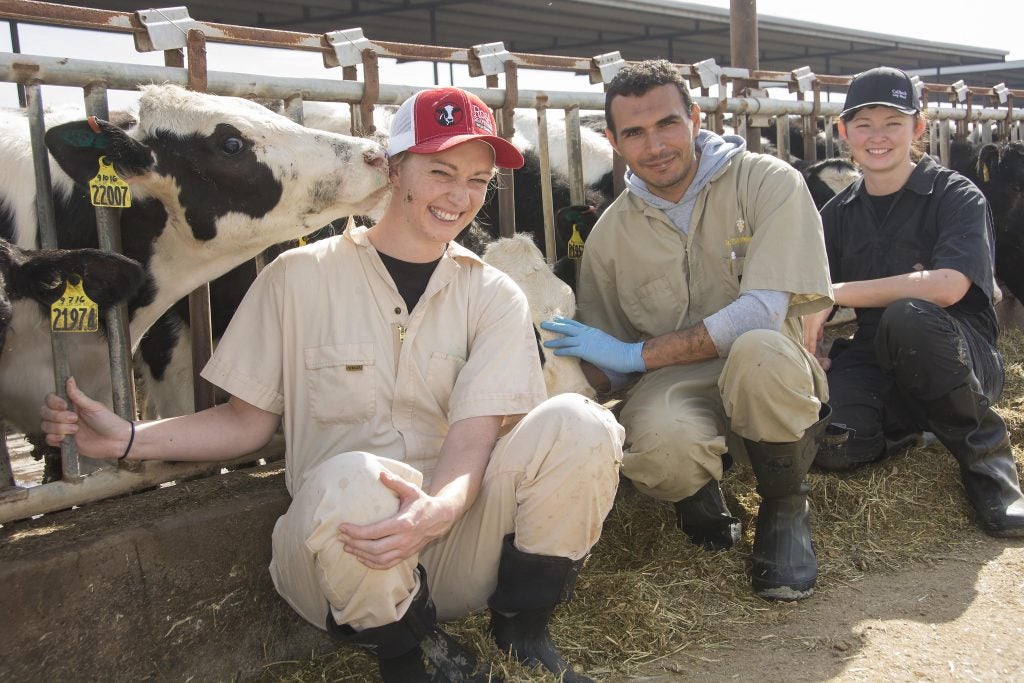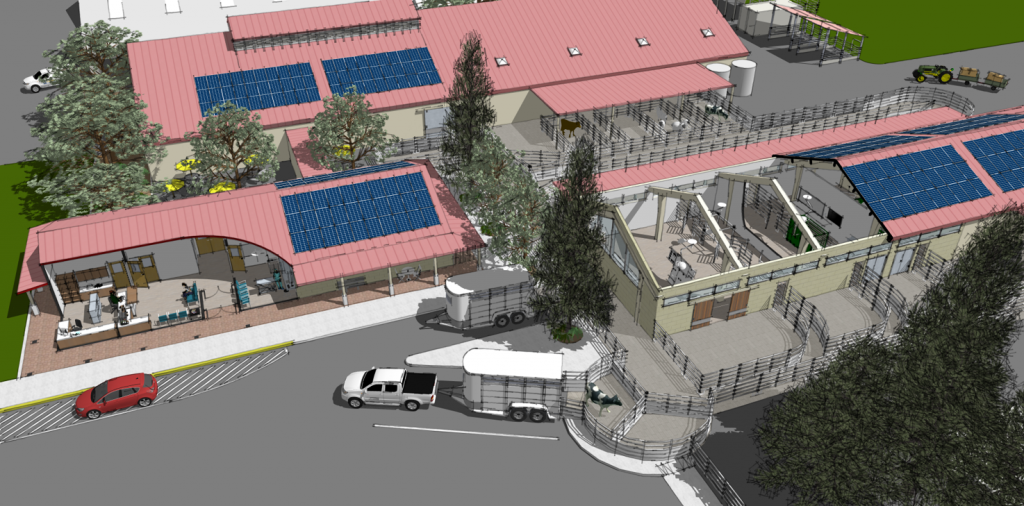“We know that a peaceful world cannot long exist, one-third rich and two-thirds hungry.” —Jimmy Carter

Earlier this year, fourth-year students Margaret Austin (left) and Hannah MacDonald received hands-on training at Tulare-area dairies under the guidance of Dr. Wagdy El-Ashmawy.
At UC Davis, we believe deeply in the interdependency of animals, people, and the planet we all share. It is with this core value that we look to the future. To feed a hungry world, we must train a veterinary workforce that is capable of addressing some daunting statistics. According to the 2017 report of the Food and Agriculture Organization (FAO), one of the greatest challenges the world faces is how to ensure that a growing global population – projected to rise to around 10 billion by 2050 – has enough food to meet their nutritional needs.
By 2050, food production needs are expected to increase by 50 percent. While global food security requires a complex series of approaches, it is clear that the production of healthy animal-sourced proteins will play a significant role in the solution.
We have come a long way since the inception of our school in the late 1940’s. Delivery of veterinary services and the education of veterinarians have significantly evolved over the past six decades. We are planning our Livestock and Field Services Center to meet these emerging needs of our regional clients and stakeholders, but also to train our students to be ready for the challenge of animal agriculture in all of its forms around the world.

